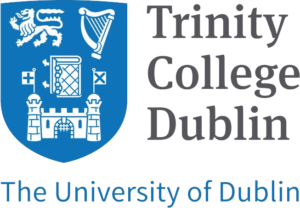BA (Honors) in Molecular Medicine: Biological and Biomedical Sciences
Key points
Molecular Medicine is a unique collaboration between the College of Biochemistry and Immunology, the Trinity Biomedical Sciences Institute (TBSI), and the St. James Hospital Department of Clinical Medicine. This is the right course for you if you have an interest in topics such as immunodeficiency, autoimmunity and inflammation, neuroscience, endocrinology, microbial diseases, molecular hematology and oncology, diagnostics and therapeutics, cell cycle and cancer.
TBSI is equipped with cutting-edge technologies and provides a rich research environment for interdisciplinary collaboration with colleagues in medicine, pharmacy, chemistry, and neuroscience, while the Department of Clinical Medicine operates out of St James Hospital and is affiliated with teaching hospitals. the General Hospital of Naas and the Hospice of Our Lady. In the area of biotechnology and biomedical research, Trinity has prioritized the areas of Immunology and Infections, Cancer, Neuroscience and Genetics, all of which are key components of the Molecular Medicine career. Immunology at Trinity is externally recognized as a strong research force area and was recently ranked among the top three nations in the world (Thomas Reuters, Essential Science Indicators database). Additionally, the Trinity School of Biochemistry and Immunology provides an excellent environment for young researchers to engage in innovative, high-impact research. The schools’ research success is evident in their strong publishing history, including results in high-quality journals, including Nature.
In addition to highly engaging course material, students will gain experimental skills in a variety of cutting-edge techniques and technologies through internships, internships at companies such as Ely Lily, and 12-week laboratory research internships in the final year of the degree. The courses are designed to equip graduates to work on all major aspects of basic and translational research and focus on developmental skills relevant to careers in molecular diagnostics and novel therapies, including next-generation biologics and immunotherapies. Course content is relevant to both academia and the healthcare / pharmaceutical sector, therefore, former graduates have moved on to study medicine, have engaged in postgraduate research (PhD, Master) and have pursued careers in industrial organizations and governmental.
Program structure
During the first two years, students who wish to take biochemistry as their final degree will take a variety of modules in biology, chemistry, mathematics, as well as open modules in other relevant areas.
Admission requirements
- Over 17 years
- Applicants will require a baccalaureate degree officially translated into English, along with their grades. Particular attention will be paid to grades in Mathematics.
- IELTS 6.5 or higher (or its internationally recognized equivalent).
Learn more about our educational offer
Request your quote
An advisor will contact you by phone and email within the following hours

